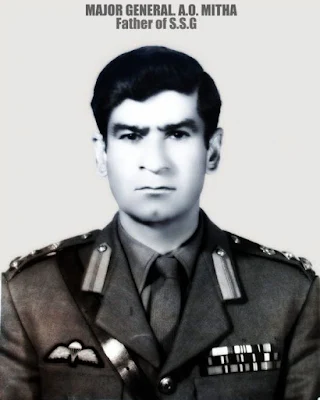SSG was set up at the suggestion of the Americans as a force that would operate against the Russians if they overran West Pakistan. Cherat was chosen as the highly restricted site where the commandos were to be trained and based. The trainers were mostly Americans from the CIA, who came with their families, setting up a little America with all its gadgetry and attendant luxuries. Mitha’s sole instruction to his handpicked Pakistani officers was: “Be proud of your poverty.” He remained head of the SSG for six years and it was an SSG detachment that buried him with full honors, sounding the last post as it lowered this soldier’s soldier in his grave four years ago. Gen Mitha was retired when he was just over 48 years old because Gen Gul Hasan added his name to a list of officers whose retirements were announced by Zulfikar Ali Bhutto in his first speech as president on December 20, 1971. It was a most treacherous blow as Mitha was too good a soldier and too reverent of tradition and rules to have had any Bonapartist ambitions. He had no hand in the officers’ “revolt” at Gujranwala and the hooting down of Gen Hamid at a GHQ meeting, events that, ironically, pushed out Yahya. In fact, it was Gul Hasan himself who was Bonapartist, something Bhutto always knew. He only used Gul Hasan. According to Gen Mitha, it was Gul Hasan who saved Brig Zia-ul-Haq, as he then was, from being sacked. Zia was in Jordan. The year was 1971. Gen Yahya received a signal from Maj Gen Nawazish, the head of the Pakistan military mission in Amman, asking that Zia be court-martialled for disobeying GHQ orders by commanding a Jordanian armor division against the Palestinians in which thousands were slaughtered. That ignominious event is known as Operation Black September. It was Gul Hasan who interceded for Zia and had Yahya let him off. Mitha was treated very badly. His Hilal-i-Jurat was withdrawn in February 1972, something that also appears to have been Gul Hasan’s handiwork. He remained under surveillance through the Bhutto years. All doors of employment were closed on him and had it not been for the generosity of a friend living abroad, who asked Mitha to manage his farm for him, he would have been on the street. After he died, one of his friends wrote to his wife, “At the end of a tumultuous life, all he wanted was room to sleep in, one to write and eat in – a space to walk, reflect and gaze across the fields to the distant hills.” That is not a bad epitaph for a soldier.



No comments:
Post a Comment